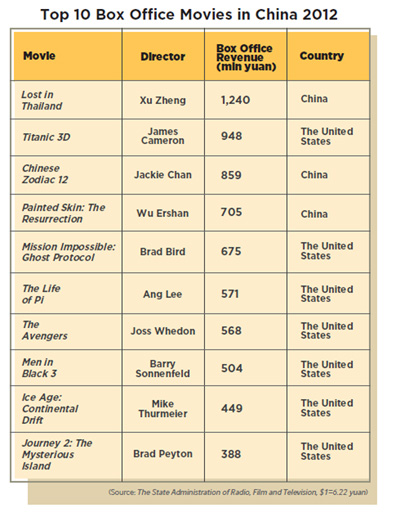|
 |
|
FORKING OUT THE DOUGH: Audience members line up to buy cinema tickets (CFP) |
Shi Chuan, a professor at the School of Film and TV Arts and Technology at Shanghai University, blames the quality of film scripts for the industry's woes. He says the rights of screen writers are not adequately protected, reducing motivation for work. With actor pay rising, screen-writers inevitably earn less.
Shi said a screen writer's top priority should be telling a good story. However, in China, scripts often lack creativity and imagination. "Without rich life experience, a writer won't be able to produce a moving story," he explained.
In recent years, Chinese companies joined U.S. producers in making blockbuster movies and increase the local industry's competitiveness. However, many feature only American plots. "Most jointly produced movies have little Chinese elements or investment," said Zhang Pimin, Deputy Director of the SARFT.
The Painted Veil (2006) directed by John Curran and starring Naomi Watts and Edward Norton, told an American story set in China, while Looper (released in last September), with Bruce Willis and Chinese actress Xu Qing, contained scenes in Shanghai that were subsequently cut from the U.S. version.
Means to meet challenges
Countries around the world are taking steps to confront challenges the domestic film industries face from Hollywood. France currently requires its cinemas to show domestic films for five weeks every three months while South Korea requests each theater to screen homemade productions for at least 73 days a year.
China is considering taking similar measures to boost the domestic film industry. On November 22, 2012, the SARFT announced that for local movies raking in box office revenues of over 500 million yuan ($80.3 million), copyright holders would be awarded at most 10 million yuan ($1.6 million).
But in the end, the key to success of China's film industry could be mere realism.
Gao Jun, Vice Chairman of New Film Association, said that big budgets and famous directors and stars alone cannot guarantee high box office results. To promote China's movie industry, "We need more small-budget films that reflect reality and touch people's hearts. We should learn from Iran, South Korea and Japan in this regard."
Gao argues that Hollywood should not be blindly imitated, as it represents only one point of view.
"Every country should tell its own stories."
Email us at: jijing@bjreview.com
  | 